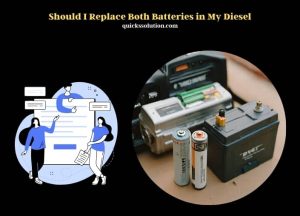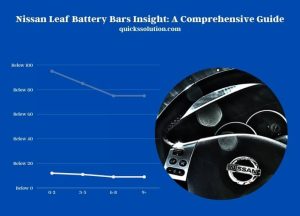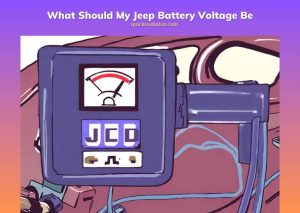Published on: August 3, 2023
Written by Amlan Roy / Fact-checked by Hashim Manna
The Dodge Charger can sometimes exhibit no throttle response, a situation that can be quite disconcerting. This could be due to various factors, each affecting the car’s performance and drivability.
The throttle body could be dirty or damaged, impairing airflow and fuel mixture, thereby affecting the vehicle’s throttle response. Issues with the throttle position sensor, an integral component that communicates pedal position to the engine control unit (ECU), can also lead to poor throttle response. If the sensor fails, the ECU will not be aware of your foot’s position on the accelerator pedal, resulting in no response when you press the pedal.
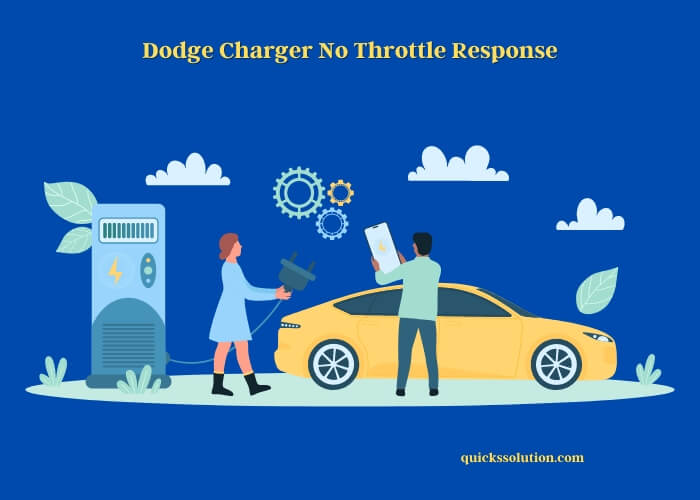
Fuel injectors deliver the correct amount of fuel into the combustion chamber. If they become clogged or fail, it can result in a lack of throttle response. The ECU, which is the car’s computer system responsible for managing and coordinating the engine’s functions, can also malfunction, leading to issues with throttle response.
Transmission issues can affect throttle response in an automatic Dodge Charger, as the vehicle may fail to shift gears smoothly. Wiring faults, usually related to corroded or disconnected wires, can interrupt the signals sent to and from the throttle position sensor, causing a lack of throttle response.
Engine misfire or a vacuum leak, both of which can lead to inconsistent combustion and a decrease in engine power, can also cause a lack of throttle response. It is recommended to address these problems as soon as possible to prevent further damage to your Dodge Charger.
The Dodge Charger Legacy
The Dodge Charger has stood as an icon of American muscle cars for decades. This car is synonymous with power, performance, and style. But, just like any high-performance machine, it can have its fair share of issues. A common problem among Dodge Charger owners is the “no throttle response” issue.
Brief History of the Dodge Charger
The Dodge Charger, a brand of automobiles marketed by Dodge, first rolled off the assembly line in 1966. Over the years, it has evolved from a two-door fastback to the current four-door sedan, while still maintaining its reputation for power and speed.
Throttle Response Mechanism: An Overview
The throttle response in a vehicle refers to the time it takes for the car to increase speed after the gas pedal is depressed. In the Dodge Charger, the throttle response is controlled by an electronic throttle control system which is designed to provide precision and quick response.
Hallmarks of No Throttle Response
Experiencing no throttle response in your Dodge Charger can be an alarming situation. The car may seem unresponsive, making it difficult to increase speed or drive smoothly. Here are some of the hallmarks of this issue.
Common Symptoms
There are a few signs that indicate a no throttle response issue. These include decreased acceleration, a lagging response when pressing the gas pedal, or the car failing to respond at all.
Implications on Driving Experience
A faulty throttle response can greatly affect your driving experience. It can lead to a lack of control over your vehicle’s speed and could potentially be a safety concern, especially when driving at high speeds or in heavy traffic.
Common Symptoms and Their Impacts on Driving Experience
| Common Symptoms | Impact on Driving Experience |
| Decreased acceleration | Difficulty in overtaking or merging with traffic |
| Lagging response when pressing gas pedal | Unpredictable car behavior, possible safety concern |
| Car failing to respond at all | Complete loss of vehicle control |
Root Causes of No Throttle Response
A no throttle response issue in a Dodge Charger can stem from a variety of root causes. Understanding these can assist in both diagnosing and resolving the problem.
Mechanical Failures
Certain mechanical issues can lead to a no throttle response. For instance, a stuck or broken throttle cable can impede the communication between the gas pedal and the throttle body, leading to no throttle response.
Electrical Deficiencies
The Dodge Charger’s throttle system is electronic. Hence, any electrical failure like faulty sensors or bad wiring could disrupt the throttle response.
Software Glitches
Sometimes, the issue is neither mechanical nor electrical but rather a software glitch. Faulty programming in the throttle system can cause it to not respond correctly.
Potential Causes, Their Symptoms, and Effects on Throttle Response
| Potential Causes | Symptoms | Effects on Throttle Response |
| Mechanical Failures | Stuck or broken throttle cable | Impeded communication between gas pedal and throttle body |
| Electrical Deficiencies | Faulty sensors or bad wiring | Disrupted electronic throttle system |
| Software Glitches | No physical defects detected | Incorrect throttle system response due to programming error |
Strategies for Problem Diagnosis
A no throttle response issue may require some technical know-how to properly diagnose. Here’s how you can approach the problem.
Self-diagnosis Guide
At times, a simple inspection can reveal the issue. Check for any apparent mechanical issues, like a stuck throttle cable. You can also inspect the wiring for any visible damage. If the problem isn’t evident, you might need to resort to diagnostic tools or professional assistance.
Professional Diagnosis: Recognizing the Need
In cases where the problem is not identifiable or is beyond your skillset, seeking professional help is advisable. Auto repair technicians have specialized tools and the expertise to accurately diagnose and address complex issues like a faulty throttle response.
Pathways to Problem Resolution
Once the issue is diagnosed, the next step is to resolve it. Depending on the cause, this could be a simple fix or may require professional intervention.
Do-it-yourself (DIY) Fixes
For some mechanical or minor electrical issues, you might be able to manage a DIY fix. This could be as simple as adjusting a throttle cable or replacing a faulty sensor.
Professional Repair Services
For issues that are more complex, or if you’re not comfortable doing it yourself, professional repair services are the best option. They can address the problem accurately and ensure your vehicle is safe to drive.
Budgeting for Throttle Response Repairs
Addressing a no throttle response issue in your Dodge Charger can range in cost depending on the root cause and the chosen repair path.
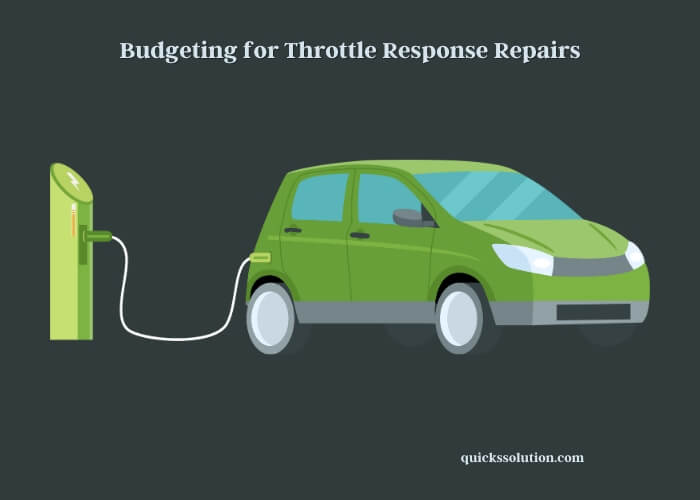
DIY Repairs: A Cost Estimate
If you’re looking to tackle the problem yourself, the cost will mostly be limited to parts. You might need to replace sensors, cables, or other components, depending on the issue.
Professional Repairs: Potential Costs
Professional repairs will be more costly as they include both parts and labor. These costs can also vary based on the nature of the problem and local labor rates.
Comparative Estimated Costs Between DIY Fixes and Professional Repairs
| Repair Type | Estimated Cost |
| DIY Fixes | Mostly parts cost, varies based on required components |
| Professional Repairs | Varies based on parts, labor, and nature of the problem |
Emerging Alternatives: Enhancing Throttle Response
Modern technology offers alternatives to traditional throttle response mechanisms. These can enhance the performance of your vehicle and potentially mitigate throttle response issues.
Performance Chips: A Modern Solution
Performance chips are designed to optimize engine performance and improve throttle response. They alter the default programming of your vehicle’s engine control unit (ECU), leading to enhanced throttle response and overall better vehicle performance.
Technical Innovations
Technical innovations, like drive-by-wire technology, provide a completely electronic approach to control the throttle. These technologies can offer a more precise and responsive throttle control, leading to better vehicle performance.
FAQs
What Causes a Dodge Charger’s Acceleration Problem?
Accelerations problems in a Dodge Charger could be due to multiple factors. These may include a failing fuel pump, a clogged air or fuel filter, a malfunctioning mass airflow sensor, or a faulty throttle response mechanism.
Why Does My Dodge Charger Lose Power While Driving?
Your Dodge Charger can lose power while driving due to various reasons. These include a failing alternator, a faulty fuel pump, a clogged fuel filter, or a malfunctioning electronic throttle control system.
How Can I Reset the Throttle Body on My 2004 5.7 Hemi?
You can reset the throttle body on your 2004 5.7 Hemi by turning the ignition switch on without starting the engine. Slowly depress and release the accelerator pedal five times within five seconds. Then, wait for about seven seconds and depress the accelerator pedal and hold for approximately 20 seconds until the check engine light stops blinking.
What is the Throttle Body Relearn Procedure for a 2006 Dodge Charger?
The throttle body relearn procedure involves resetting the electronic throttle control by turning the ignition switch on without starting the engine. Then, slowly depress and release the accelerator pedal five times within five seconds. Following this, wait for around seven seconds, then depress the accelerator pedal and hold for 20 seconds until the check engine light stops blinking.
What is a Throttle Response Controller?
A throttle response controller is a device that interfaces with the electronic throttle system of a vehicle. It’s designed to enhance the throttle’s sensitivity, offering drivers more immediate response upon pressing the accelerator.
How to Manually Reset Electronic Throttle Control in a Dodge Charger?
To manually reset the electronic throttle control in a Dodge Charger, first, turn on the ignition without starting the engine. Next, press and release the accelerator pedal five times within five seconds. Wait for seven seconds and then press and hold down the accelerator pedal for around 20 seconds until the check engine light stops flashing.
What Could Be the Reason for My Dodge Charger’s RPM Problems?
RPM problems in a Dodge Charger can arise from a variety of causes. These can range from issues with the spark plugs, a malfunctioning throttle system, a clogged air or fuel filter, or potentially even transmission problems. Always consult a professional if you’re experiencing persistent issues with your vehicle’s RPM.
Read More:
- Does a Crankshaft Sensor Have to Be Programmed?
- Solve Your 2014 Dodge Charger Trunk Issues Effortlessly?
- Solving John Deere 9.0 Liter Engine Problems: A Complete Guide
- Overcoming Honda Civic Shift Lock Release Problems: A Guide
- Why Does My Honda CRV Beep When I Walk Away?
References
Additional Resources

